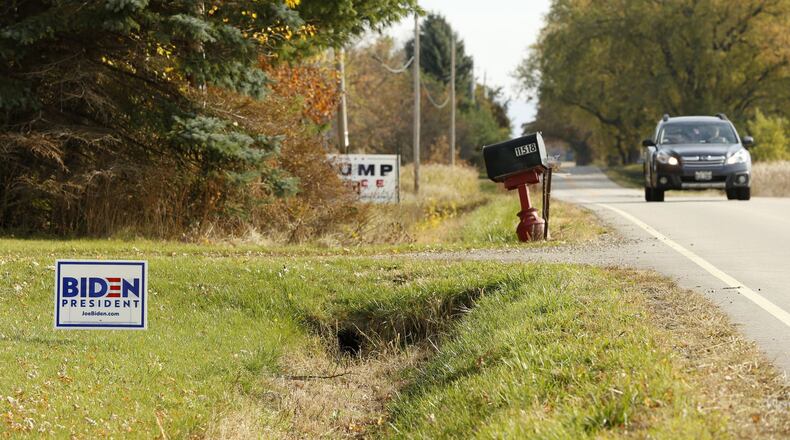I am just back from two weeks vacation in the Georgia mountains where there were regular news reports of stolen or vandalized political signs across parties. On one Main Street corner, supporters would vie to keep their candidate’s signs in front of those of opponents, leading each day to a political version of line jumping.
A guest column today addresses this marked lack of civility in our current political season. Joseph Watson Jr. is the Carolyn Caudell Tieger Professor of Public Affairs Communications and director of the Public Affairs Communications program at the University of Georgia. Sarah Geary is a Tieger Fellow in Public Affairs Communications and an undergraduate student majoring in public relations at UGA.
By Joseph Watson and Sarah Geary
As we find ourselves on the cusp of a historic election in 2020, amid a pandemic and widespread civil unrest, discord seems to be the order of the day and, regardless of the outcome, that seems likely to remain the case. According to the latest AJC-SPIA public opinion poll, Georgia has become a battleground state and is in play for the Democratic presidential candidate for the first time since 1992 and hosts two hotly contested races for the United States Senate.
This poll also contains distressing news about political polarization, revealing that 11% of Georgia likely voters surveyed would not accept the legitimacy of the presidential election outcome, regardless of who wins, with an additional 9% of voters rejecting the legitimacy of the outcome depending on who wins.
A 2019 study from Pew Research shows that these findings are not limited to Georgia. Since 2017, the percentage of both Republicans and Democrats who say the opposing party is “more immoral” than other Americans has increased. Even more concerning is the perceived lack of common ground between opposing partisans. Sen. Daniel Patrick Moynihan once famously stated that “everyone is entitled to his own opinion, but not his own facts,” but the same study found that “73% of the public … say that voters in both parties not only disagree over plans and policies, but also cannot agree on the basic facts.” Social media platforms along with cable news outlets have created echo chambers that exacerbate this phenomenon.
Credit: Sarah E. Freeman/Grady College
Credit: Sarah E. Freeman/Grady College
In essence, our present lack of civility is a problem of education and we have to listen to each other if we want to address it. Conservative writer William F. Buckley Jr. once quipped that “liberals claim to want to give a hearing to other views, but then are shocked and offended to discover there are other views.” Today, his observation proves true for both the left and the right. There seems to be a state of disbelief that others see the world and politics differently because we spend so much time in our own echo chambers avoiding meaningful discussions with those who might have different opinions. Sadly, this also extends to classrooms where too many faculty and students are afraid to have frank conversations about the issues that really matter in a university setting where such discussions should occur.
Despite all of this, there is a deep recognition that restoring some semblance of civility is crucial to our country’s future. Without civil discourse, our republic does not function and we will be unable to achieve long-term solutions to our most vexing problems.
In 2016, the University of Georgia established the Public Affairs Communications program, the first program in the nation to instruct undergraduate students in public affairs communications -- the use of communications strategy and tactics to shape public policy and electoral outcomes. Its mission, in part, is to encourage the kind of civility that is in short supply today. The PAC program, the brainchild of UGA alumna Carolyn Caudell Tieger, a Washington communications veteran with decades of experience, provides a forum for frank and open conversations about even the most sensitive and contentious political issues.
This starts in the classroom where students learn the specialized skills communicators use to educate, shape or change public opinion on legislation, issues and political candidates. In doing so, they also learn what drives differences of opinion between voters and our political parties and that there are many different views on a given issue, let alone strategy.
It is incredibly important to provide students with this safe haven to engage in discussions on tough issues -- a practice we hope they will carry with them after they leave the classroom, especially as some will one day serve in local, state and/or federal government roles. The program facilitates networking and social events so that those on opposite ends of the political spectrum have a chance to interact beyond the classroom and learn to appreciate one another as individuals, not just by their partisan labels. This has the practical effect of cultivating bipartisan friendships we trust will endure for years to come.
Our hope is that the discussions and friendships encouraged by the program will produce the new season of civility in American politics that we would all like to see in the future.
About the Author
The Latest
Featured





